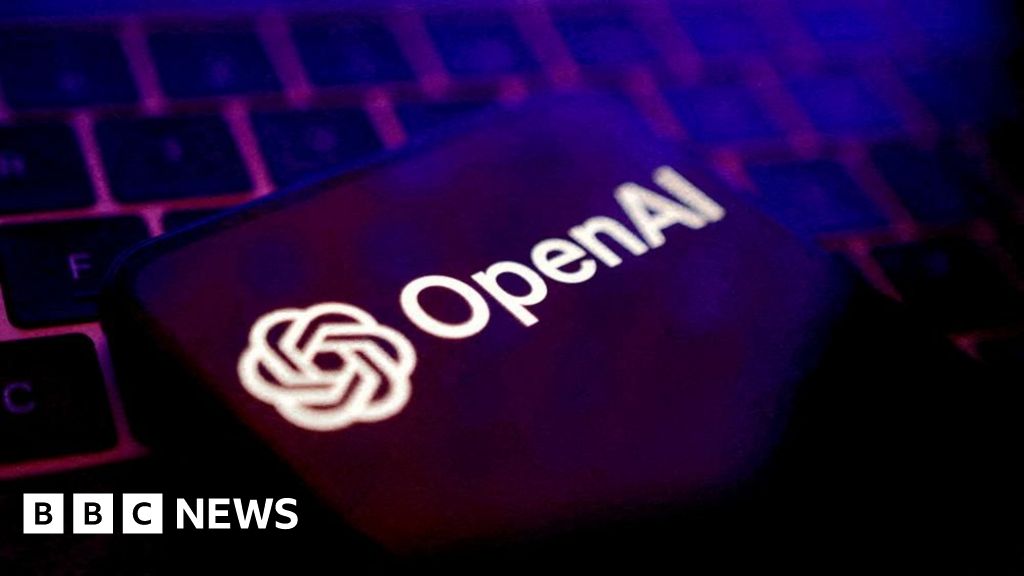Can Musk damage OpenAI even though his bid has failed?
- BBC News
OpenAIs board of directors has officially rejected Elon Musks nearly $100bn offer for the maker of what is the worlds best-known artificial intelligence (AI) tool, ChatGPT.
But the unsolicited bid might not be a failure - at least as far as Musk is concerned, experts say.
Thats because the offer could still complicate CEO Sam Altmans plans to transform OpenAI from a non-profit controlled entity to a for-profit company.
Musk is "basically trying to stymie OpenAIs growth trajectory," said University of Cambridge associate teaching professor Johnnie Penn in an interview with the BBC.
Last week, Musk and a consortium of investors including Hollywood superagent Ari Emanuel tabled a $97.4bn (£78.4bn) offer for all of OpenAIs assets.
It was a huge sum - but less than the $157bn the firm was valued at in a funding round just four months ago, and much lower than the $300bn that some think it is worth now.
Complicating all of this is OpenAIs unusual structure which involves a partnership between non-profit and for-profit arms.
Mr Altman is understood to want to change that, stripping it of its non-profit board.
That involves costs which Mr Musk is seemingly trying to inflate.
"What Musk is trying to do here is raise the perceived value of the non-profit arm of OpenAI, so that OpenAI has to pay more to get out of the obligations it has to its own non-profit," said Dr Penn.
The value of its non-profit assets isnt clear. With his bid, Musk was floating a price, according to Cornell University senior lecturer Lutz Finger, who is also the founder and CEO of AI startup R2Decide.
"By Musk putting a price tag on the non-profit part, he makes the split way more expensive for Altman to do," Mr Finger told the BBC. "Its very simple."
Mr Musk justified his actions by saying he wants to return OpenAI - which he co-founded - to its non-profit roots and original mission of developing AI for the benefit of humanity.
Others, though, suggest he has somewhat less noble motives linked to his own AI company xAI and chatbot Grok, which have received a lacklustre response from the public.
"Musk has missed the AI train, somewhat. Hes behind, and he has made several attempts to catch up," Mr Finger said.
Now, Mr Finger says, Mr Musk is trying to kneecap his most formidable competitor.
An already-tense relationship appeared to worsen further last week with Mr Altman taunting Mr Musks offer on X, and Mr Musk retorting by calling his onetime partner a "swindler".
Mr Altman then hit back in an interview with Bloomberg, opining that Mr Musk is not "a happy person" and saying his decisions are made from a "position of insecurity".
The tit-for-tat is also playing out in court, where US district judge Yvonne Gonzalez Rogers is considering Mr Musks request for an injunction that would block OpenAI from its planned conversion.
He claims that he will be irreparably harmed without her intervention.
"It is plausible that what Mr Musk is saying is true. Well find out. Hell sit on the stand," Gonzalez Rogers said during a hearing in Musk v Altman earlier this month in Oakland, California.
According to OpenAIs lawyers, Mr Musks recent bid contradicts his earlier claims that OpenAIs assets cannot be transferred away for "private gain."
"[O]ut of court, those constraints evidently do not apply, so long as Musk and his allies are the buyers," their reply brief states.
Some observers say making a deal never appeared to be his goal.
"I think hes just trying to create noise and news and consternation," says Karl Freund, founder and principal analyst at Cambrian-AI.
But in addition to causing problems for his old rival, that strategy could inflict lasting damage on Mr Musks own reputation.
"Hes brilliant. He creates incredible companies that are doing incredible things. But his personal agenda is causing people to question his motives," Mr Freund said.